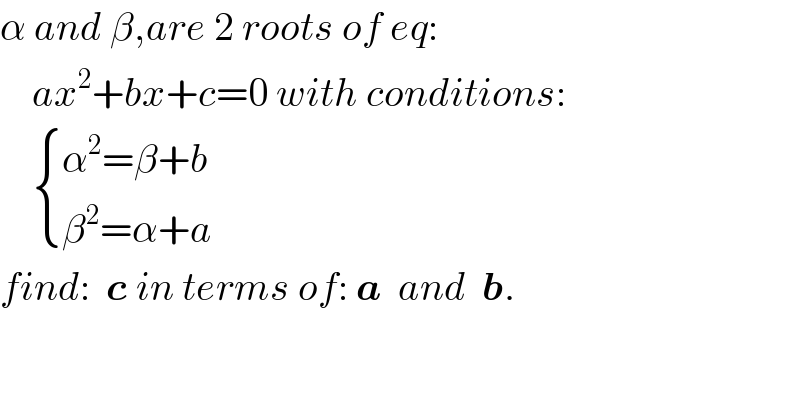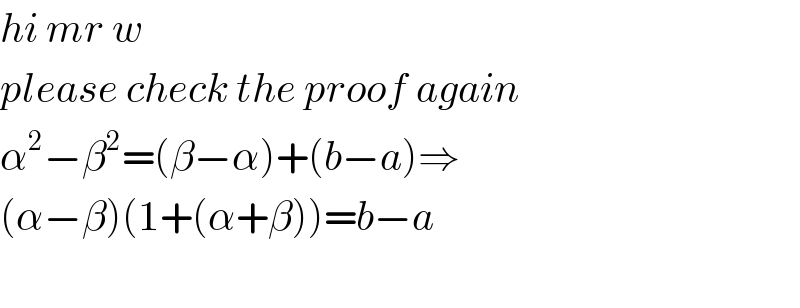
Question and Answers Forum
Question Number 55039 by behi83417@gmail.com last updated on 16/Feb/19

Commented by mr W last updated on 17/Feb/19

Commented by kaivan.ahmadi last updated on 17/Feb/19

Commented by mr W last updated on 17/Feb/19

Answered by kaivan.ahmadi last updated on 16/Feb/19

